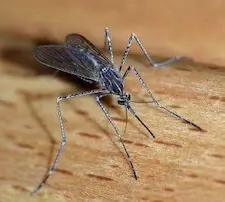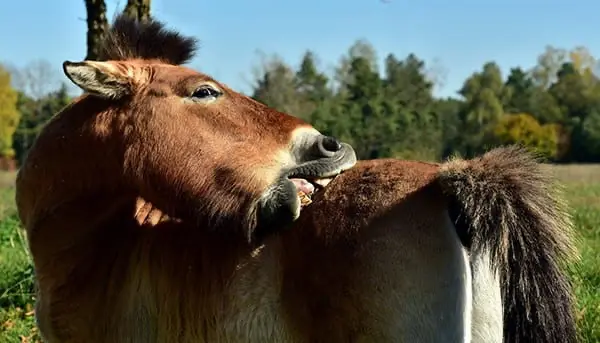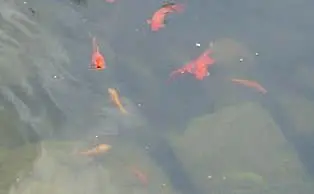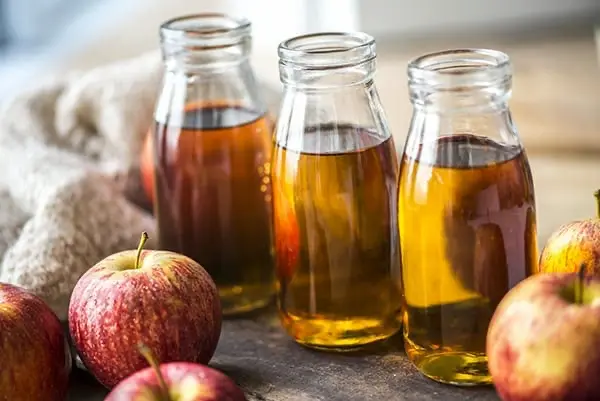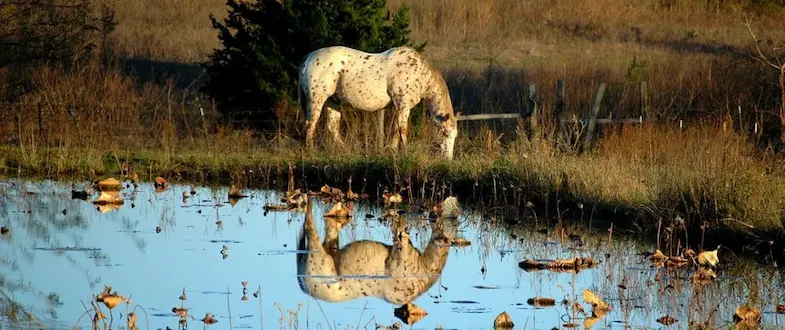These days we all want to do our bit to help the environment and in the past chemical mosquito repellents where the best option, but while they can still play their part, today there’s a vast range of natural alternatives to not only keep the mosquitoes away but to prevent them from returning.
Why are mosquitoes a problem for horses?
Let’s be honest, nobody likes mosquitoes, and while they can be an annoying irritant, in some parts of the world they can carry some serious diseases. Most of us know about mosquito-borne diseases such as malaria, but what about encephalitis? Just because a horse is bitten by a mosquito carrying a disease it doesn’t automatically mean that the horse will suffer from the disease, nor does it mean that the horse will succumb to it. That said some diseases can be very serious (and fatal on occasions) so it’s important to know what to look out for.
Malaria
Technically horses don’t suffer from malaria but what they do suffer from instead is equine piroplasmosis. Also known as babesiosis or binary fever, equine piroplasmosis is effectively malaria but just by another name. Most horses will only suffer mild, flu-like symptoms but in countries where the disease isn’t common, the outlook isn’t so good because the horses haven’t developed a resistance. As such many of these countries (such as the US) require a negative equine piroplasmosis test prior to allowing a horse into the country.
Common symptoms of malaria in horses are:
- High temperature
- Chills (ranging from mild to severe)
- Sweating
- Abdominal pain
- Diarrhea
- Anemia
- Muscle aches
- Blood in droppings
Zika Virus
Until recently it was thought that horses weren’t susceptible to Zika but researchers have recently discovered that horses in the South Pacific have started to build an immune response to the Zika Virus. Of course, this doesn’t exactly confirm that horses can (or do) suffer from Zika, but what it does do though is hint that some horses at least may have been infected at some point in their life.
No actual cases of Zika have ever been reported in horses but it’s thought that they would only display mild, fever-like symptoms and that the horse wouldn’t have any trouble successfully fighting the virus.
Encephalitis
Affecting both horses and humans alike, encephalitis is a very serious disease that can cause paralysis as well as damage to the central nervous system. There are a number of different strains that are mainly defined by area, for example, Eastern Equine Encephalitis (or EEE), Western Equine Encephalitis (or WEE), Venezuelan, Japanese, and St. Louis.
Equine Encephalitis can be fatal and, while the severity of the different strains can vary, it’s important to seek medical advice immediately. Thankfully though there is an annual vaccine (normally given in spring) for both EEE and WEE.
Common symptoms of all strains of equine encephalitis are:
- High temperature
- Depression
- Altered mood
- Impaired eyesight
- Muscle twitches and spasms
- Circling
- Head pressing
- Unable to swallow
- Paralysis
West Nile Virus
West Nile Virus is also known as West Nile Encephalitis (or WNV) and, like Equine Encephalitis, can be extremely serious. There’s no known cure but a vaccine has recently been developed that, once approved will help to protect horses from the disease. Unlike Equine Encephalitis WNV is more common towards the end of the summer.
Common West Nile Virus symptoms are:
- High temperature
- Loss of appetite
- Muscle weakness
- Fatigue
- Enlarged lymph nodes
- Head pressing
- Paralysis (particularly of the rear legs)
- Muscle spasms
- Coma (only in extreme cases though)
Yellow Fever
More common in parts of South and Central America as well as Africa, yellow fever is a viral infection that can affect the liver along with other internal organs. Veterinarian advice should always be sought but in most cases, the disease will pass without the horse suffer more severe symptoms such as jaundice and bleeding from the mouth, eyes, and nose.
Common symptoms of yellow fever in horses are:
- High temperature
- Cold sweat
- Muscle aches
- Fatigue
- Weakness
- Jaundice
That doesn’t mean to say you should wrap your horse from head to toe in protection for the entire time the mosquitoes are active, after all, many of these diseases can also affect us too yet most of the time we’re okay. Instead, the idea is to reduce the number of mosquitoes around and do what you can to make your horse less appetizing to them. After all the summer is a great opportunity for many of us to spend longer with our horses so why let those pesky mozzies stop us!
Why do mosquitoes love horses?
Mosquitoes are blood-sucking insects that will happily feed on any blood source regardless of where it comes from but they will also go for the easiest option with the biggest rewards which is why they seem to pick on horses a lot.
To a mosquito, a horse is an ideal target because not only do they have large bodies but those bodies are generally covered in only a light covering of hair which makes it easier for them to get through to the skin. The proximity with which horses live to water (like most grazing animals) helps as far as the mosquitoes are concerned because it means they don’t need to travel so far for food but at the same time, a horse isn’t able to offer much of a defense against these bloodsuckers so, given the choice they mosquito will, of course, go for the option of least resistance.
It’s believed that carbon dioxide is the single biggest factor that mosquitoes are attracted to and when you consider how big a horse’s lungs are it’s no wonder they seem to make a beeline for them.
Remove the source of the mosquitoes
While some mosquitoes will lay their eggs on mud or other damp surfaces the majority of them choose to lay their eggs on standing or stagnant water because the eggs sink to the bottom and give the larvae a better chance of surviving. They will lay eggs in running water if there’s no standing water but because the water is moving the chances of all of the eggs surviving is lower, also the eggs that do survive will be dispersed over a greater distance.
Of course, the obvious thing would be to remove any standing water but the mosquitoes don’t need much, then there’s the added complication of horses need water to drink. Fear not though there are a few simple steps you can take to reduce the amount of water ‘lying’ around but also reduce the number of eggs that reach the adult stage.
Stop water collecting
It never ceases to amaze me just how much water can accumulate in the most unlikely of places. This is why you should store barrows tipped against the wall and throw away any old tires you no longer need. Doing this will stop rainwater gathering but in order to stop it from gathering in tires and barrels that you are using simply drill holes in these so the water can drain out.
Add a goldfish or two to the water trough
Yes, you did read that correctly, adding a few goldfish to a water trough (you can also add them to ponds and barrels) will greatly reduce the number of mosquitoes. This is because as the eggs drop to the floor the fish eat them, therefore decreasing the numbers that make it to adulthood. Every few weeks you’ll still need to clean the trough but having fish in it really does work.
The fish will automatically dart out of the way of horses (or anything that moves over the water) but if you add a couple of rocks they can hide from predators under them. If you do have a lot of predators in your area then you might find it better to have dark-colored fish.
In some areas you may not legally be allowed to keep goldfish outside so before you do it’s better to check with the local authorities or pet shop.
Mosquito Dunks
If you’re not allowed to keep goldfish in your area or just don’t want to then something like “Mosquito Dunks” is a perfect solution. They’re a biological larvicide that you place in the water trough and perfectly safe for horses and other animals. Most general stores will sell them but if not you can purchase them on Amazon and they come in packs of six with each one lasting for at least 30 days.
Using food to keep mosquitoes away from your horse
You may be surprised to know that there are some foods (or ingredients at least) you can add to your horse’s food (or water) to help keep the mosquitoes away from them.
- Apple cider vinegar – Adding a little bit of apple cider vinegar to your horse’s water will not only keep the flies away but can also help to prevent enteroliths (The formation of intestinal stones), although some research suggests that too much apple cider vinegar (around a cup a day) can increase the acid in your horse’s stomach and therefore increase their risk of an ulcer.
- Peppermint – As well as tasting delicious mints are doubly good at keeping mosquitoes away. Their cool nature means your horse won’t sweat quite as much during the summer so the mosquitoes won’t be able to find your horse as well, but at the same time mosquitoes hate the smell of peppermint, even just a small amount can keep them away.
- Garlic – We all know that garlic is great for keeping flies away but the same can also be said for mosquitoes. Garlic is high in sulfur and mosquitoes hate the smell of it.
Other things you can do to keep mosquitoes away
If you don’t want to rely on you those eating (or drinking) the right things to keep mosquitoes away don’t worry, there are other things you can do to keep those pesky mozzies away from your horse.
- Don’t turn out at dusk or dawn – Mosquitoes are more active during sunset or sunrise so if you can, avoid turning your horse out at those times. If you’re not able to keep him in when the mosquitoes are at their busiest then the next tips may help.
- Rub citrus oil on your horse’s coat – The acidity in the citrus fruit (in particular oranges, lemons, and limes) can help to keep mosquitoes away because they find the scent too strong (although some other insects may be attracted to the smell). Onion oil will also work but its pungent aroma might keep you away too!
- Diatomaceous earth – You may not have heard of diatomaceous earth but its a naturally occurring sedimentary rock that crumbles very easily. It can be ground down into a chalky powder that, when rubbed into your horse’s coat, is great at killing mosquitoes. It does this because when it gets on the to mosquito it dehydrates them and they eventually die. Diatomaceous earth can also be fed as a supplement that acts as a natural dewormer.
- Neem – The oil from the Indian Neem Tree can be diluted with water and sprayed on a horse’s coat and is known to be capable of killing over 500 different insect species. Neem oil can be very strong and is often highly concentrated so you only need to dilute a little bit but in order to be effective, it needs to be used every day.
I hope you found this article helpful. If you did I’d be grateful if you could share it please as it would really help me.
Recommended products
Over the years I have tried hundreds of different horsey products, from various blankets and halters to different treats. Some I’ve loved, others I’ve hated but I thought I’d share with you my top all-time favorite products, the ones I never leave the yard without. I’ve included links to the products (which are in no particular order) that I really think are great.
- Horse Knots by Reference Ready – If you’re like me and enjoy pocket reference guides then you’ll love this knot tying guide. These handy cards can easily fit in your pocket or attach to the saddle for quick reference. They’re waterproof, durable and are color coded to make them easy to follow.
- Mane ’n Tail Detangler – Even if you never show your horse you’ll need to detangle his tail from time to time (and possibly his mane too) which is always a challenging chore! I’ve found that if I run a little bit of detangler through my horse’s tails every few days it stops them from getting matted up and makes combing them easy, even if they’re coated in mud. I don’t know if I should admit to this or not but it also works wonders on my hair.
- TAKEKIT Pro clippers – Over the years I’ve tried a lot of different clippers and while some were obviously better than others I found these to be by far the best. They are heavier than a lot of other clippers but for me, that’s a good thing, it makes them feel more sturdy and hardwearing. On top of that they have a range of speeds so are just as good for clipping your horse’s back as they are his face. I also like the fact that they come in a handy carry case but that’s not for everybody. The company that makes them is super good and incredibly helpful too, a real bonus these days. The only thing I wasn’t keen on was the fact that it doesn’t come with any oil, but that’s not a major problem as it’s not difficult to buy lubricant.
- Shire’s ball feeder – There are so many boredom buster toys out there but I like to use these every day, regardless of whether or not my horses are bored. I find that it helps to encourage my horses to problem solve by rewarding them with treats (or pieces of fruit) but it also mimics their natural grazing behavior which helps to keep them calm and de-stressed.
- Horse safe mirror – This is a strange one that many people are surprised about but I like to put horse safe mirrors in the trailers as well as in the quarantine stalls. It helps to prevent the feeling of isolation by giving the impression of other horses being around. Being herd animals horses can get extremely stressed when they feel that they’re on their own but with these stick-on mirrors, they believe that at least one other horse is with them.
- Rectal thermometer – I know this isn’t glamourous at all but it’s vital for your horse’s well-being to be able to check their temperature and a rectal thermometer is the easiest way of doing this which is why I’ve added it to the list.
Shopping lists
I’ve also put together a few shopping lists of essential items that I’ve found helpful over the years. I’ve broken the lists down into different categories rather than put everything in one massive list 😉

